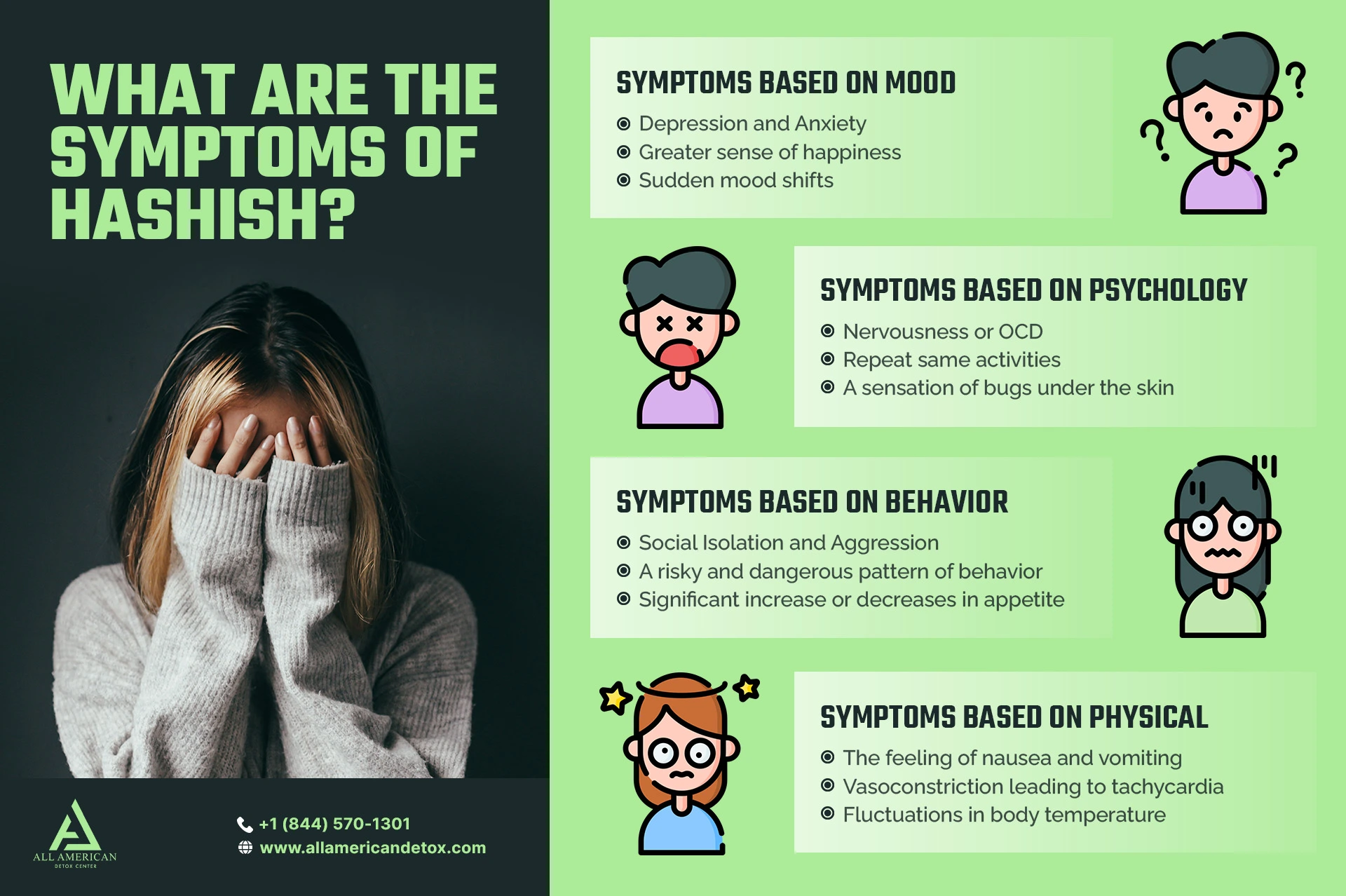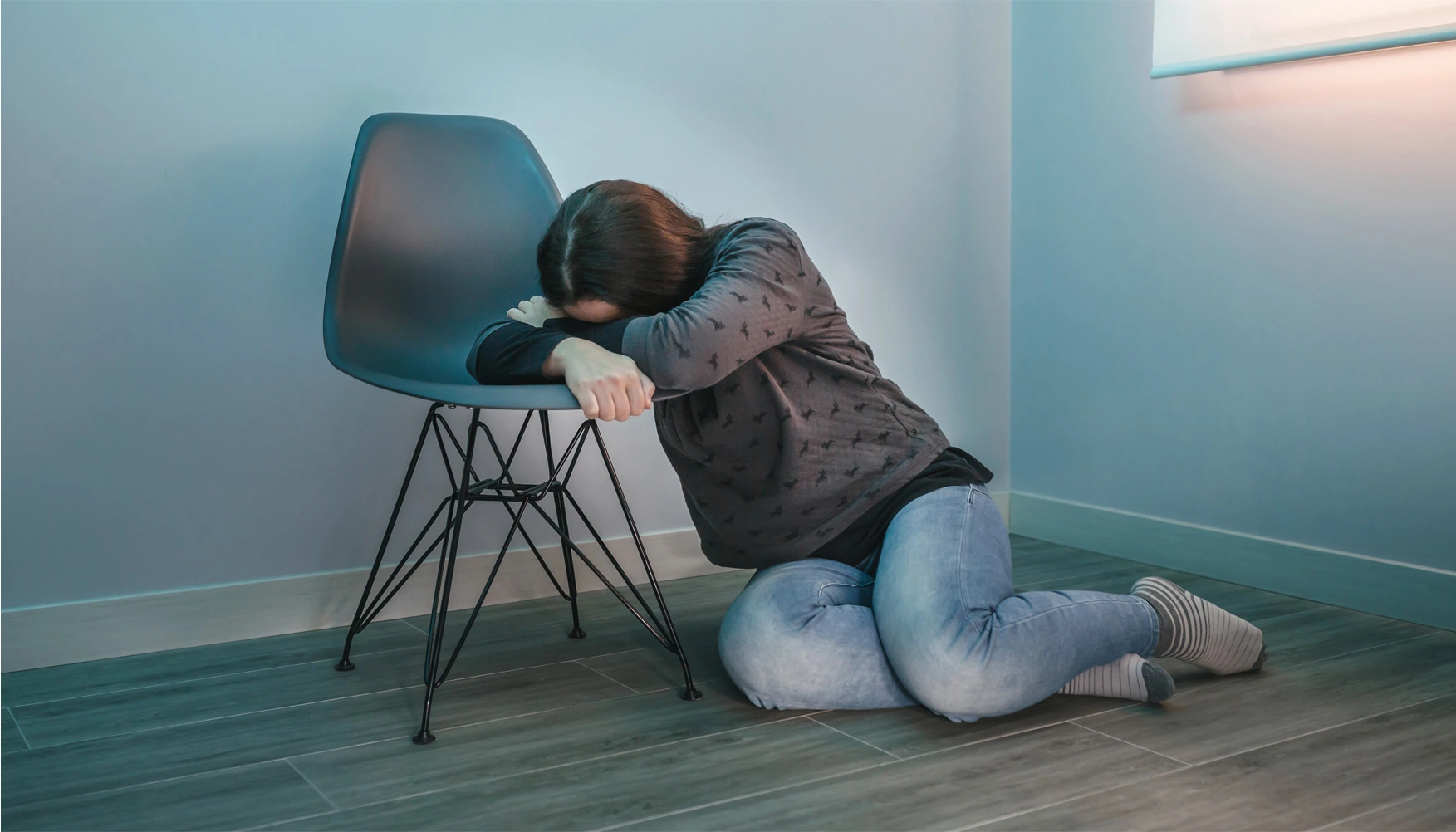According to the United Nations, about 158.8 million people take Hashish all over the world and that’s around 4% of all the people in the world. That’s a huge number and just goes to show how much this drug affects people worldwide. In the United States itself, over 48.2 million people, or about 18% of all Americans reported using Hashish at least once in 2019, that is according to the CDC. In this article, we will learn about Hashish effects, its symptoms & how to recover from Hashish addiction.
What is Hashish?
Hashish is just another form of cannabis, also known as Marijuana. The difference being Hashish is much more potent and its effect can last longer depending on its quality. The active agent in Marijuana that is responsible for getting you high is “THC” and the concentration of THC in Hashish is much higher. It sort of gives you a better high compared to other marijuana products and only drug detox can get the user back to normal.
How Does Hashish Affect You?
It affects you the same marijuana does, the only difference being it will stay in your system for much longer due to a much denser concentration of THC. Whether you eat it or smoke it, it will get into your bloodstream and from there it will travel to your brain. Once it gets there, it will bind itself to certain receptors in the GABA nerve terminals of the neurons in your brain called the CB1 and CB2. After it gets attached to the receptors, it will change the production of certain chemicals in your brain, including dopamine, norepinephrine, serotonin, etc. Changes in the production of these chemicals result in the development of euphoria, also known as feelings of pleasure and happiness.
Can You Get Addicted To Hashish?
Yes, absolutely and there’s no doubt about it. Like any other marijuana, Hashish is extremely addictive and if taken for a long time, it will slowly develop into addiction. Once you get addicted to it, it will be very hard to get rid of it and often requires medical intervention and inpatient treatment programs at detox centers.
What Are the Symptoms of Hashish?

What symptoms the user experiences depends on the dosage and the concentration of the THC in the Hashish they take. But, most people who have this drug addiction will experience the following symptoms-
-
Symptoms Based on Mood
-
Depression
-
Anxiety
-
Euphoria
-
Greater sense of happiness
-
Sudden mood shifts.
-
Symptoms Based on Psychology
Here are the following psychological symptoms that will begin to manifest when a user takes a considerable dose of Hashish
-
Nervousness
-
Repeat same activities
-
OCD
-
Paranoia
-
Hallucination
-
Insomnia
-
A sensation of bugs under the skin.
-
Symptoms Based on Behavior
Here are some potential signs and symptoms when it comes to behavioral changes-
-
Social Isolation
-
A dangerous pattern of behavior
-
Aggression
-
Impulsiveness
-
Incarceration
-
Significant increase or decrease in appetite
-
Symptoms Based on Physical
Here are some potential signs and symptoms when it comes to physical changes-
-
Twitches, spasms, and shakes
-
The feeling of nausea and vomiting
-
Increased libido which could lead to unprotected sex and pregnancy
-
Hair loss and open sores
-
Vasoconstriction leading to tachycardia
-
Lung damage
-
Fluctuations in body temperature
-
Engaging in risky activities
If you are not sure about the symptoms, please check into a California drug rehab to confirm any of your doubts.
What Causes the Hashish Addiction?
There are exact causes yet that could describe the exact reason why a person gets addicted to Hashish, but factors such as environmental, social, psychological, biological, genetic, and availability of the drug play a crucial role. It all comes down to these factors that ultimately determine whether a person will get addicted to this drug or not. Suppose, the environment where a person lives may have other addicts, which makes it easy for the person to gain access to the drug. If one parent or both struggled with addiction in the past, their genes could get passed on to the children. Psychological issues such as depression, anxiety, and insomnia can also push a person to either self-medicate or turn to drugs.
How Long Does Hashish Stay In Your Body?
How long Hashish stays in the body depends on what you mean by it. If you mean how long the effects and feelings of Euphoria last, then depending on whether you consumed it through ingestion or smoke, it could last somewhere between 3 & 5 hours to 24 hours. But if you want to know how long the drug itself stays in your body, as in how long is it detectable in tests, then that depends on the test itself.
- In the case of blood tests, Hashish leaves your body after about 1 – 2, and after that, it’s undetectable in your blood. But that’s a typical case. In rare cases, Hashish could be detected even after 25 days.
- As for urine tests, it could be detectable for 3 – 30 days depending on whether you are a moderate or a chronic user.
- As for saliva tests, it could be detectable for 1 – 3 days for the occasional users while it could be detectable for up to 29 days in the case of chronic users.
- Hair testing can detect Hashish could be detectable for up to 3 months.
Can You Get Rid of Hashish Addiction?
Yes, but it will require a drug intervention program and the user must be admitted to an inpatient substance abuse treatment center. If treatment is delayed, things can get much more serious and complicated and the user could get an overdose.
Wrapping Up
Hashish is one of the most abused drugs of all time and is common among teenagers and college students. If you are a parent or a guardian and start noticing the symptoms, please consult your nearest detox center for advice and recommendation. All American Detox is a California-based Drug Rehab Center that can help you in dealing with Hashish addiction. You can call the addiction recovery helpline number at +1 8445701301.


